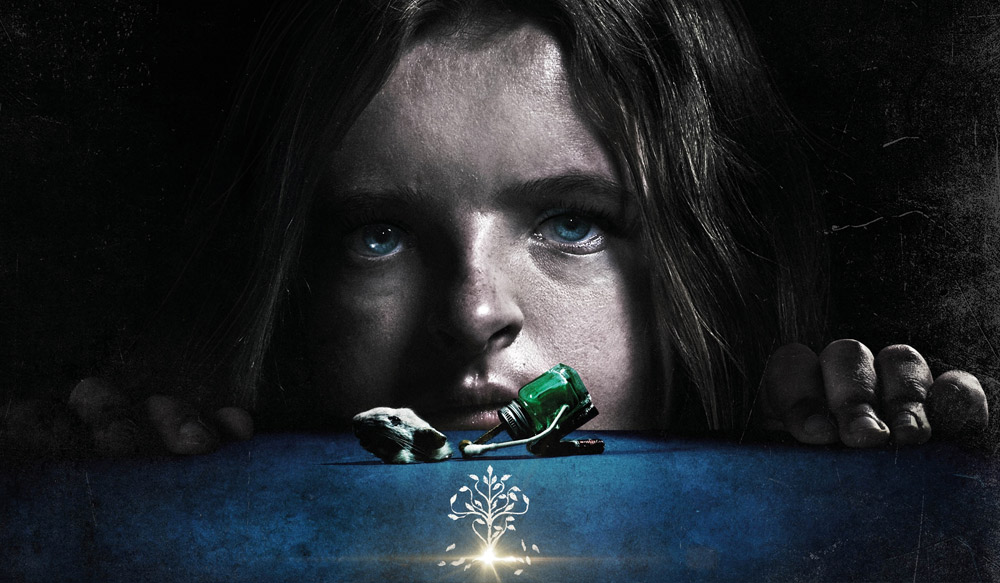
Hereditary (2018) is a psychological horror film written and directed by Ari Aster in his feature directorial debut. The film is known for its deeply unsettling atmosphere, slow-burn tension, and its exploration of grief, trauma, and family secrets. Hereditary became a critical and commercial success, earning recognition for its disturbing imagery, complex narrative, and standout performances, particularly by Toni Collette.
Plot Overview:
Hereditary revolves around the Graham family, who are thrown into turmoil after the death of the matriarch, Ellen. Ellen’s passing triggers a series of increasingly horrifying events, beginning with the mysterious death of her daughter, Annie’s (Toni Collette) mother, and continuing with dark secrets about the family's past coming to light. Annie, who is a sculptor and grief-stricken mother, struggles to deal with the loss while trying to keep her family together. Her husband, Steve (Gabriel Byrne), is supportive, but their relationship becomes strained as the horrors escalate.
Annie’s teenage son, Peter (Alex Wolff), and younger daughter, Charlie (Milly Shapiro), are both affected by the eerie events that begin to unfold in their home. Charlie, who exhibits strange and unsettling behaviors, becomes the center of the family's nightmare as the film explores the tragic consequences of inherited trauma.
As the film progresses, Annie uncovers chilling truths about her family's dark history, including connections to a satanic cult and an ancient curse. The film culminates in a nightmarish and shocking climax that pushes the boundaries of grief, guilt, and the supernatural.
Key Themes:
- Grief and Trauma: Hereditary is deeply concerned with the emotional devastation caused by grief. The family’s reactions to the death of Annie’s mother, as well as the fallout from other tragic events, are explored in haunting detail. The film paints a picture of how trauma can be inherited, manifesting in both psychological and supernatural ways.
- Family Secrets and Legacy: The narrative reveals dark secrets about the Graham family’s history, including generational trauma. The theme of inherited curses is central to the plot, with family members unknowingly carrying the burden of past sins and hidden horrors.
- The Supernatural vs. Psychological Horror: While the film is often categorized as supernatural horror due to its eerie and otherworldly events, it also explores psychological horror, particularly the psychological breakdown of Annie and the family's descent into madness. The line between the supernatural and the mental deterioration of the characters becomes increasingly blurred.
- Control and Powerlessness: Throughout the film, characters struggle with their inability to control their fate, whether it’s Annie's inability to control her grief, Peter’s guilt, or the family's general powerlessness in the face of an ancient evil that seems to have already sealed their fate.
Notable Aspects:
- Toni Collette's Performance: Toni Collette’s portrayal of Annie is widely regarded as one of the best performances in modern horror. She brings a raw, intense energy to her role, conveying the emotional depth of a mother dealing with loss and the terrifying unraveling of her family. Collette’s performance is key to the film’s emotional resonance and horror.
- Charlie (Milly Shapiro): The character of Charlie, Annie’s strange and unsettling daughter, is integral to the film’s sense of unease. Her behavior is odd and unsettling, from her unsettling clicks and noises to her tragic fate. The character plays a pivotal role in the unfolding supernatural events, and her death sets off a chain reaction that spirals into horror.
- The Sound Design: The film’s use of sound is one of its most effective tools for building tension and unease. From the unnerving soundtrack to the subtle background noises, Hereditary uses sound to create an atmosphere of dread, often making the audience feel like something is wrong even when nothing is explicitly happening.
- The Visuals: The film is visually striking, with careful attention to framing and composition. Aster uses still shots and slow, deliberate movements to build tension and create a sense of growing horror. The unsettling imagery, including shocking moments of violence and symbolic imagery, intensifies the film's atmosphere.
- The Shocking Climax: Hereditary is known for its terrifying and unexpected climax, which takes the audience to places of horror that are deeply disturbing and psychologically profound. The film's final act delivers a nightmarish culmination of the family’s dark history and their ultimate fate, pushing the boundaries of both supernatural and psychological horror.
The Ending:
The ending of Hereditary is ambiguous, deeply unsettling, and open to interpretation. Without giving away too many spoilers, the film concludes with a horrific revelation about the true nature of the family’s curse and their connection to an ancient cult. The ending is shocking, emotionally overwhelming, and leaves the audience with lingering questions about fate, guilt, and the horrors that can be passed down through generations.
Impact and Legacy:
Hereditary was a game-changer for the horror genre, combining psychological depth with supernatural terror. It’s often hailed as one of the best horror films of the 21st century for its ability to create tension, evoke deep emotional responses, and push the boundaries of what is considered horror. Ari Aster’s direction, Toni Collette’s performance, and the film’s unnerving atmosphere have made Hereditary a standout in modern horror cinema.
The film’s success has led to a continued exploration of similar themes in Aster’s follow-up film, Midsommar (2019), which also deals with grief, trauma, and psychological horror. Hereditary continues to be a touchstone for filmmakers and horror fans alike, cementing its legacy as a deeply disturbing exploration of family, loss, and the supernatural.